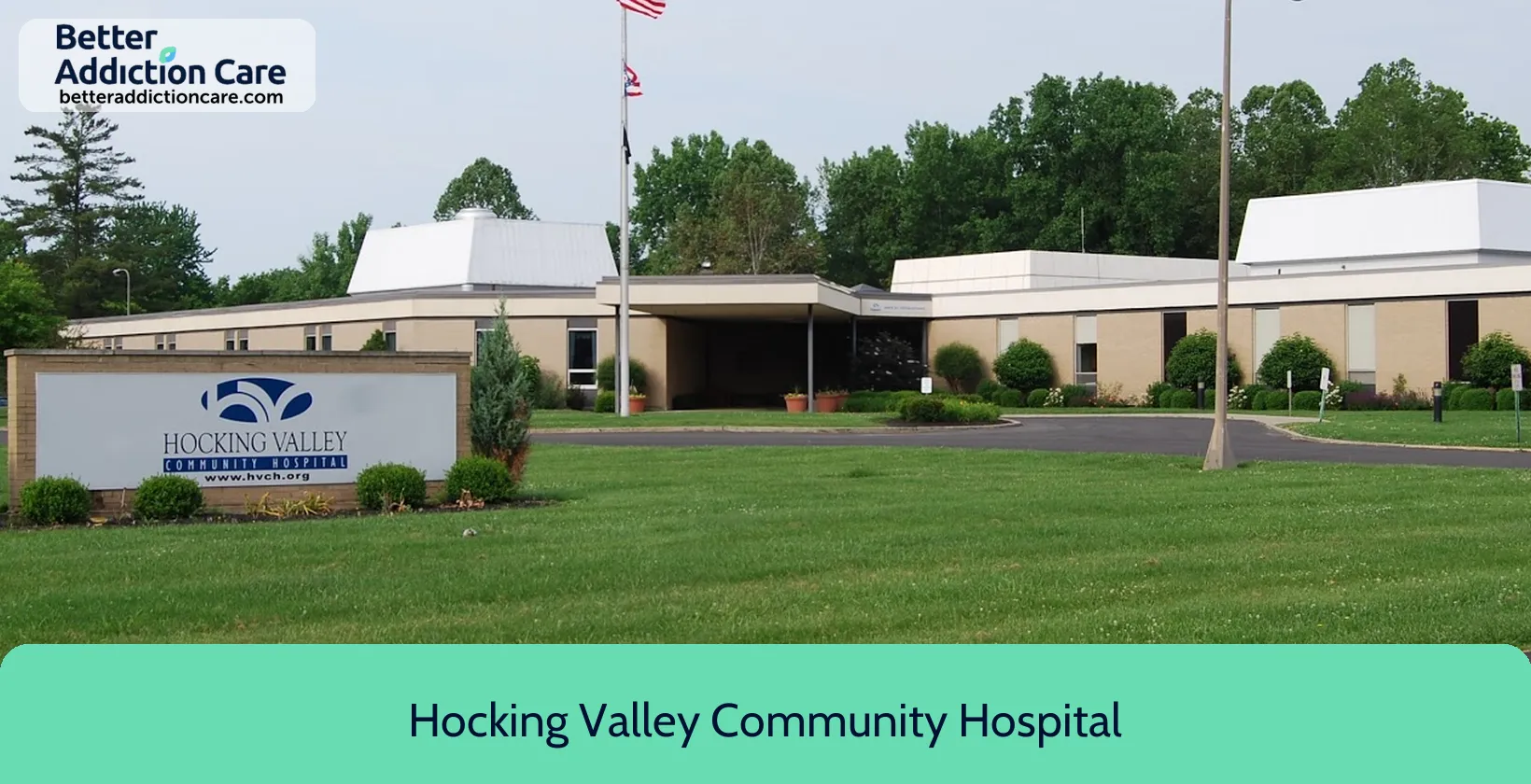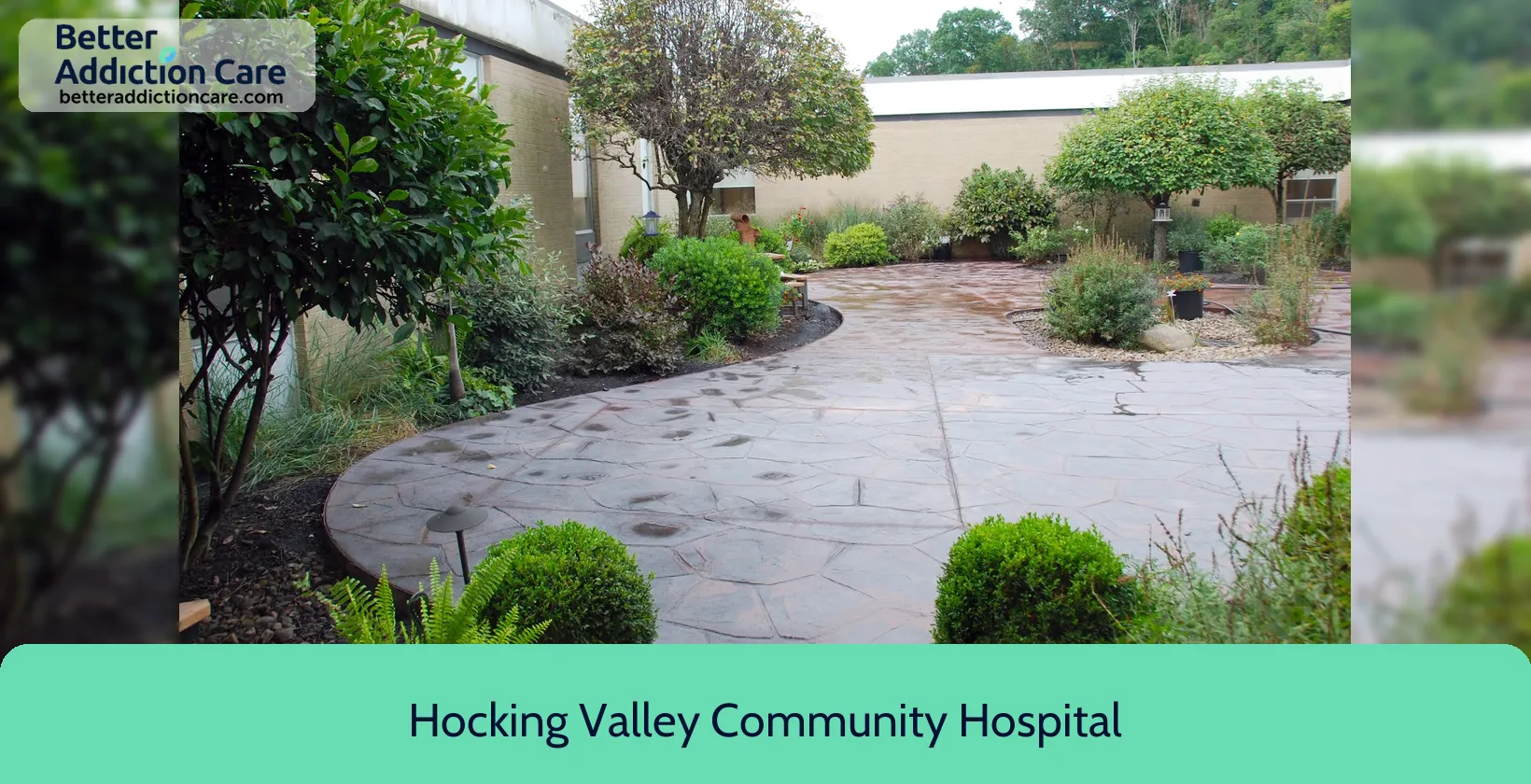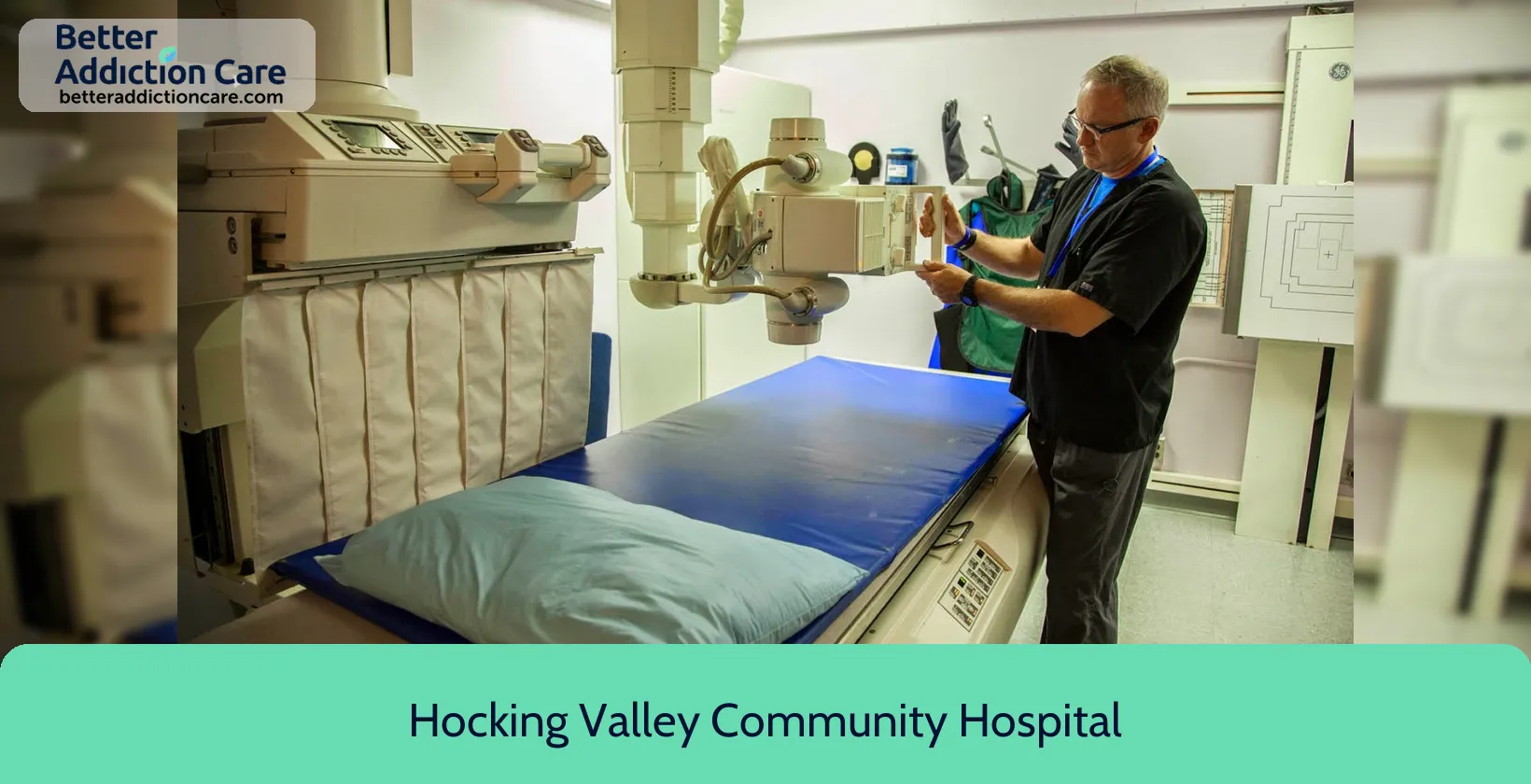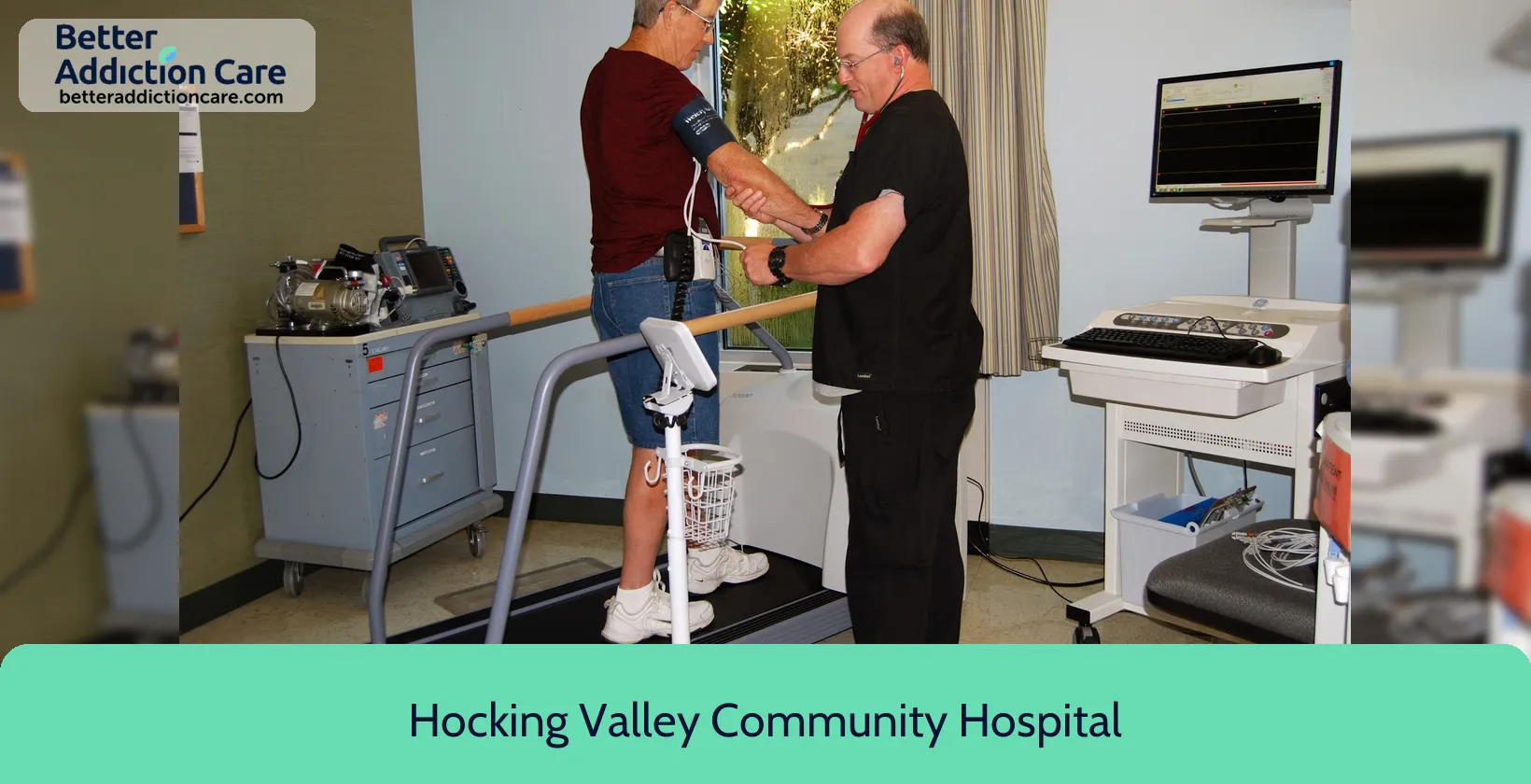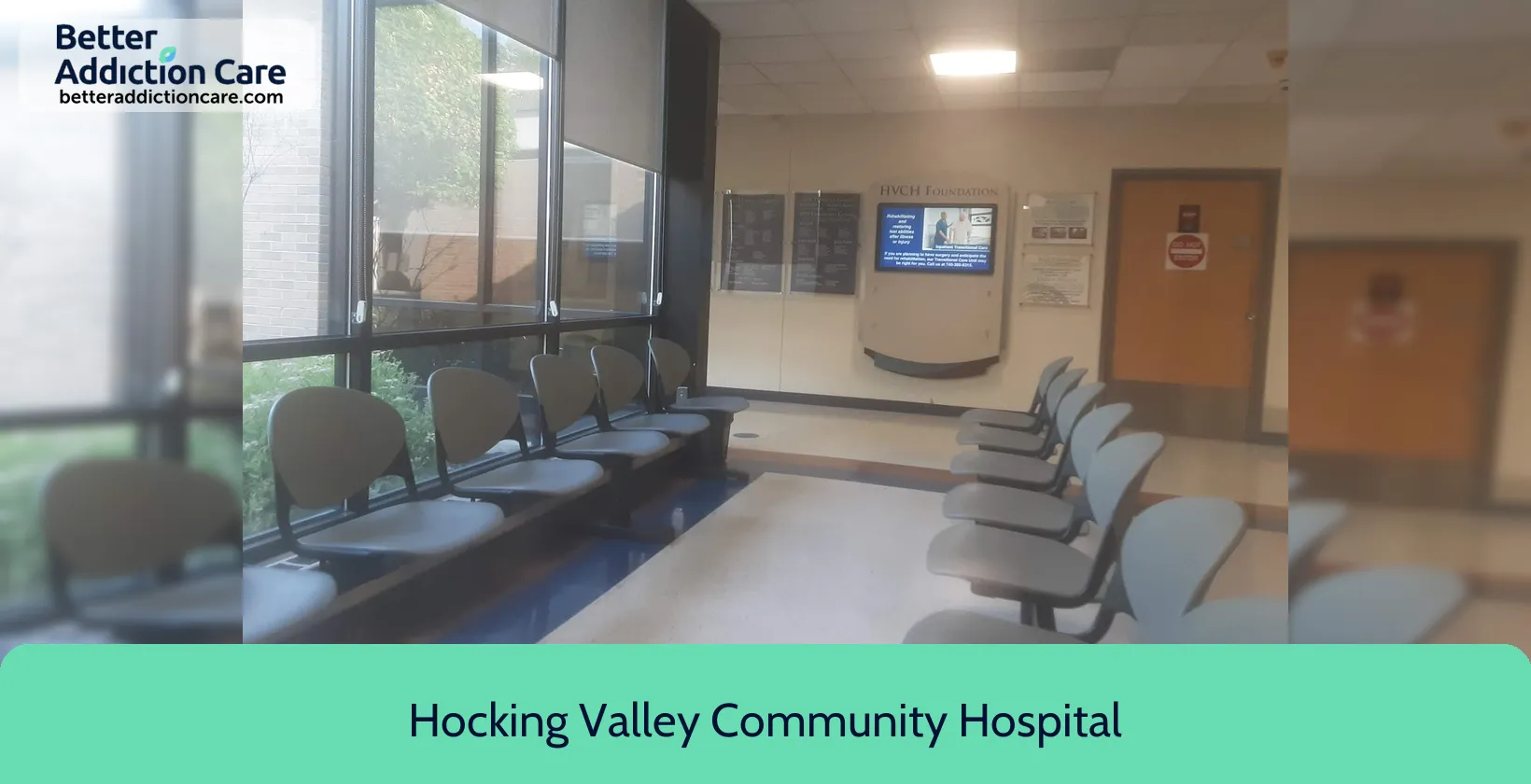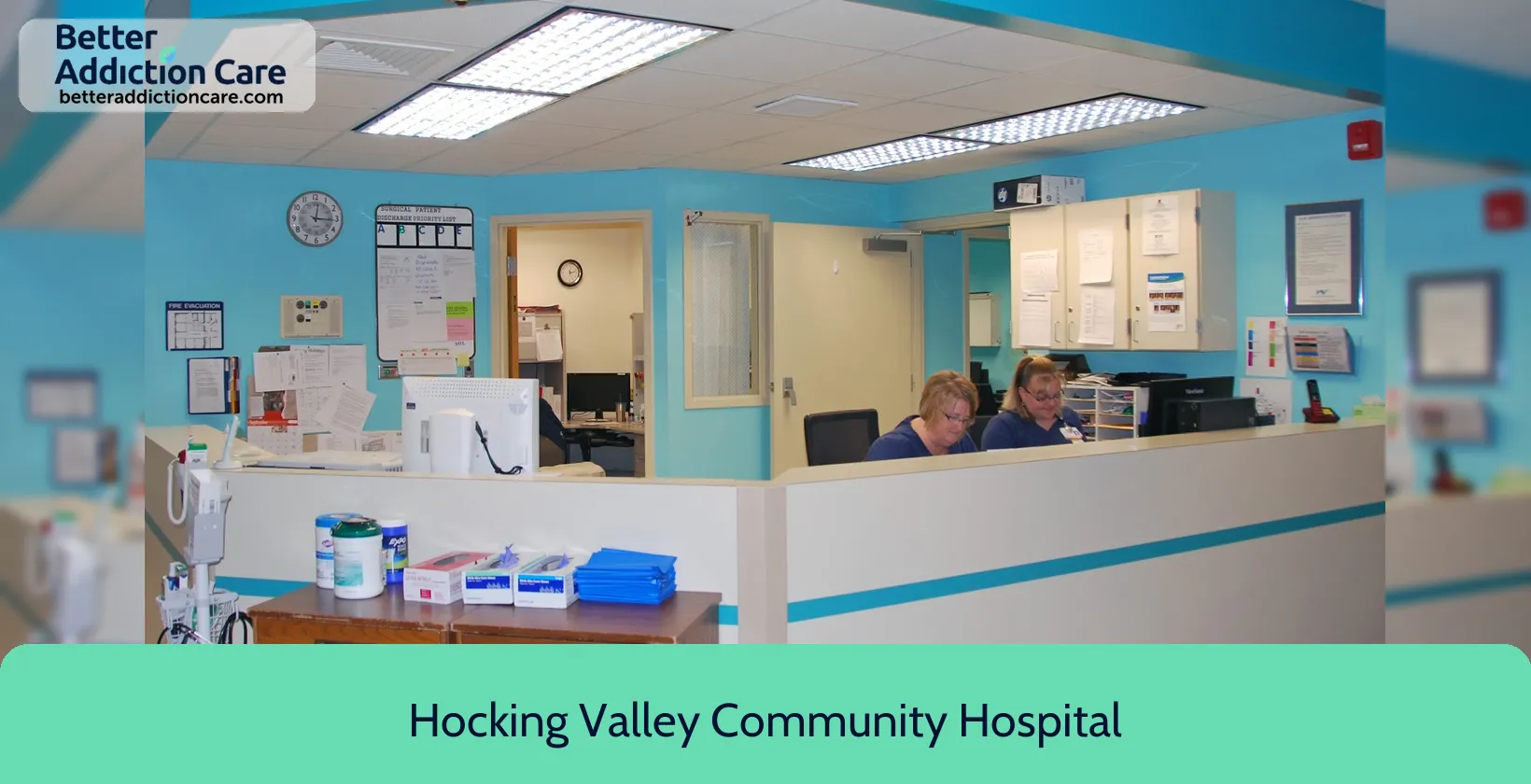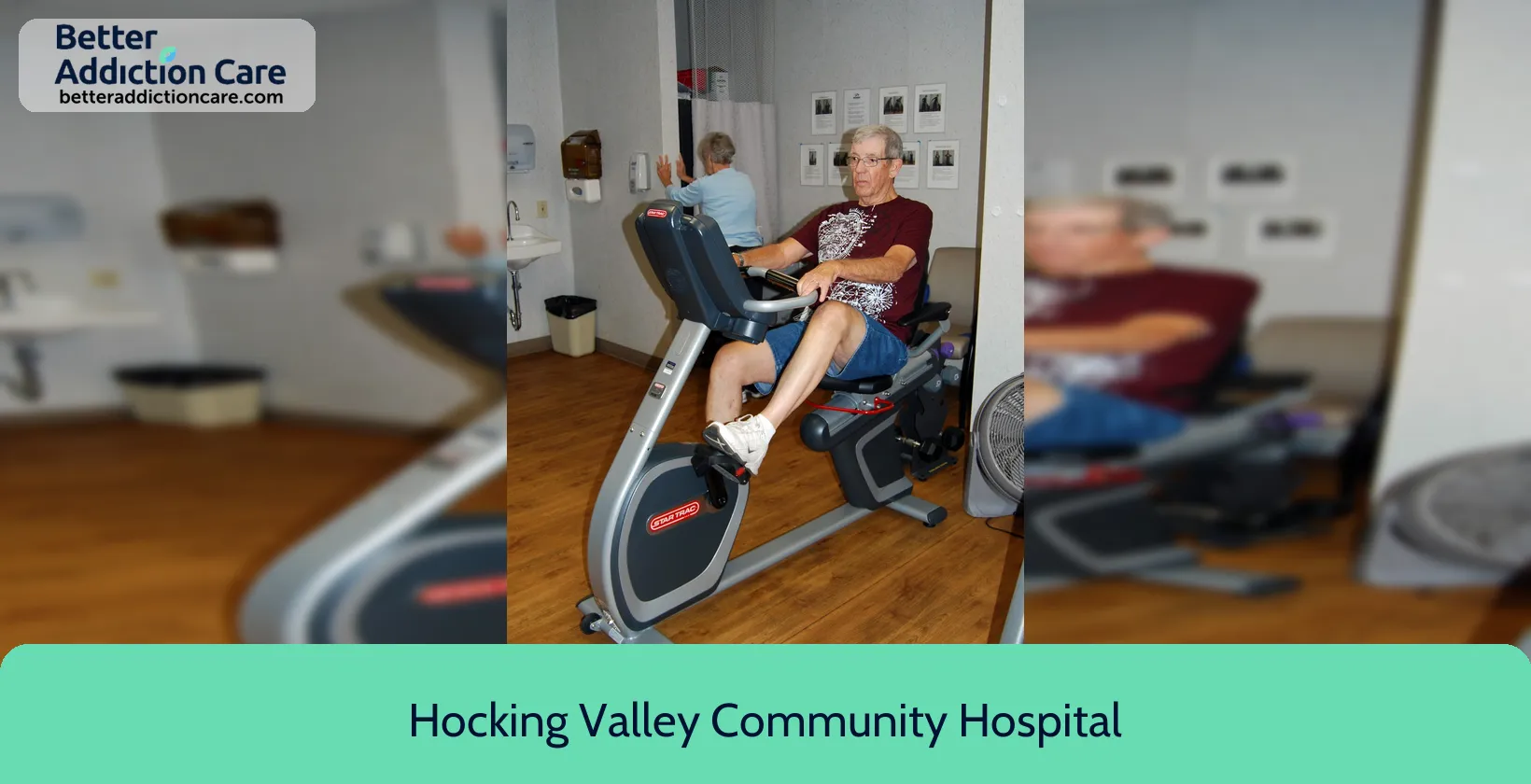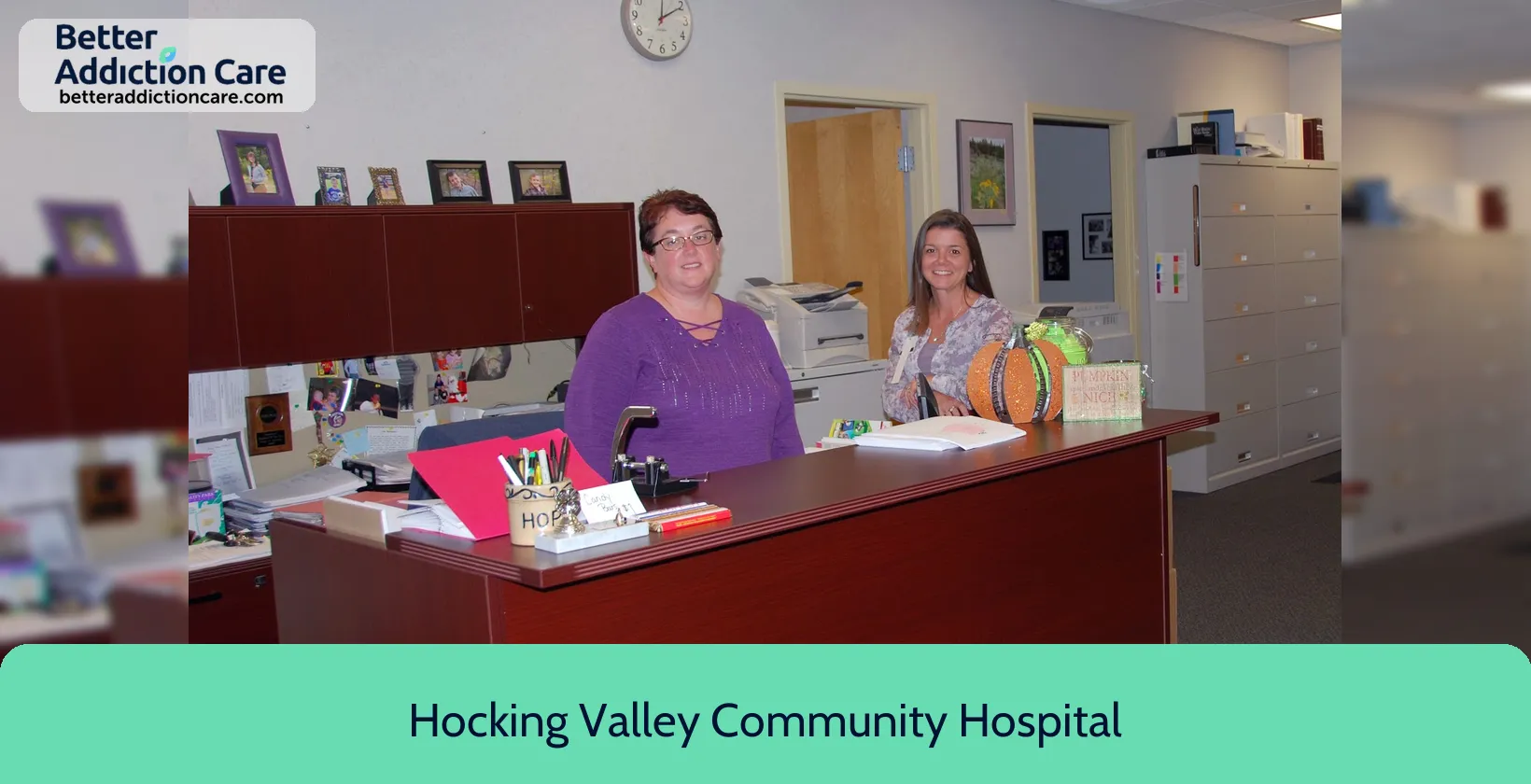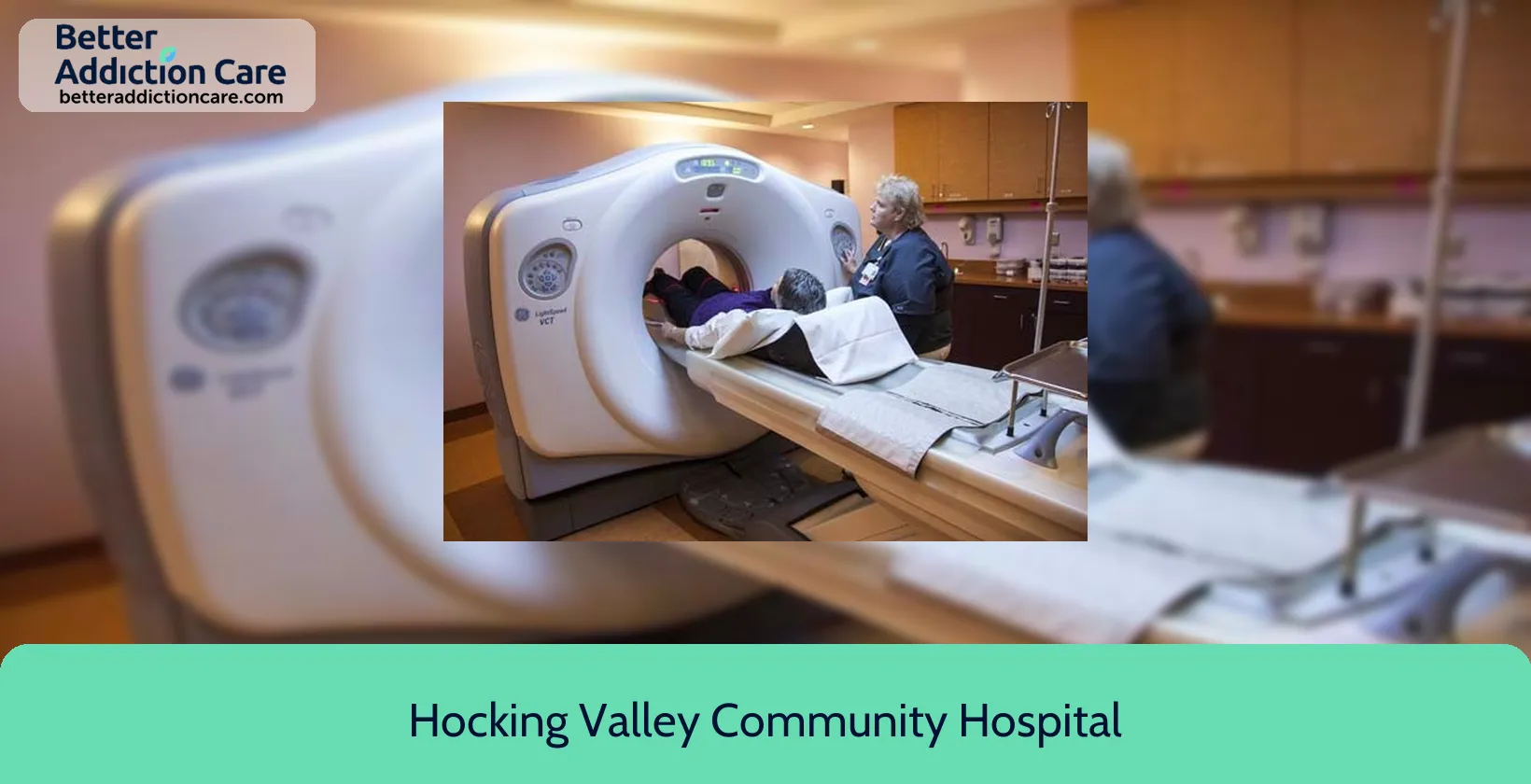Overview
Hocking Valley Community Hospital is an substance abuse treatment center that provides inpatient treatment for men and women between 18 and 65+ years of age. As part of their special programs, Hocking Valley Community Hospital treats clients with hiv or aids, persons with eating disorders, and clients who have experienced trauma. To help patients achieve sobriety, Hocking Valley Community Hospital provides intake assessments. Afterward, patients receive family counseling, cognitive behavioral therapy, and eating disorder treatment during treatment. Hocking Valley Community Hospital is located in Logan, Ohio, providing treatment for people in Hocking County, accepting medicaid, private health insurance, and cash or self-payment.
Hocking Valley Community Hospital at a Glance
Payment Options
- Medicaid
- Private health insurance
- Cash or self-payment
- State-financed health insurance plan other than Medicaid
- Medicare
Assessments
- Comprehensive mental health assessment
- Comprehensive substance use assessment
Age Groups
- Adults
- Seniors
- Young adults
Operation
- State government
Highlights About Hocking Valley Community Hospital
6.68/10
With an overall rating of 6.68/10, this facility has following balanced range of services. Alcohol Rehabilitation: 8.00/10, Drug Rehab and Detox: 6.00/10, Insurance and Payments: 6.00/10, Treatment Options: 6.73/10.-
Alcohol Rehabilitation 8.00
-
Treatment Options 6.73
-
Drug Rehab and Detox 6.00
-
Insurance and Payments 6.00
Treatment At Hocking Valley Community Hospital
Treatment Conditions
- Mental health treatment
- Substance use treatment
- Co-occurring Disorders
Care Levels
- Hospital inpatient treatment
Treatment Modalities
- Family counseling
- Cognitive Behavioral Therapy
- Eating Disorder Treatment
- Group counseling
- Experiential Therapy
Ancillary Services
Languages
- Sign language services for the deaf and hard of hearing
Special Programs
- Clients with HIV or AIDS
- Persons with eating disorders
- Clients who have experienced trauma
Contact Information
Read our Most Recent Article About Drug Addiction
DISCLAIMER: The facility name, logo and brand are the property and registered trademarks of Hocking Valley Community Hospital, and are being used for identification and informational purposes only. Use of these names, logos and brands shall not imply endorsement. BetterAddictionCare.com is not affiliated with or sponsored by Hocking Valley Community Hospital.
